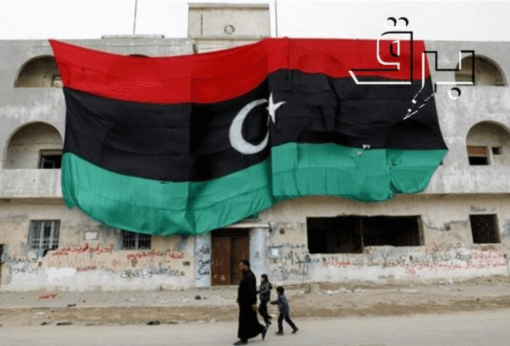
Photo by BRQ Network | CC BY 2.0
Revelations into Libya’s awful migrant detention centres showed the humanitarian emergency that occurs within them. The international community – particularly the European Union, has not only failed to address this problem, but is responsible for causing it.
After Libya descended into chaos following long-time leader Muammar Gaddafi’s fall in 2011, the nation became a major hub of slavery and migrant-trafficking.
For the hundreds of thousands of those fleeing war-torn areas in Sub-Saharan Africa, Libya serves as a strategic point to reach the safe havens of Europe.
However, those who fail to reach Europe face equally dire circumstances to their homeland after being detained by Libyan authorities, as part of an EU-deal with the Libyan Government of National Accord (GNA) penned in February. This deal entails the Libyan coastguard stopping migrant vessels leaving Libya. It was quite rightly slammed as ‘inhumane’ by the UN recently.
Due to lack of protections for migrants from in this deal, migrants are either brutally tortured, abused and even sexually assaulted by Libyan authorities in camps, or are sold into slavery by unscrupulous smugglers.
A CNN investigation showed the true horrors of human-trafficking. Migrants are treated like cattle, sold for as little as four hundred dollars, and sometimes moved from one slave master to another.
Others on the scene report migrants in camps showing signs of torture, burns, lashings, and other abuses. An Italian doctor Pietro Bartolo slammed them as ‘concentration camps’.
“You must realise that in Libya, black people are not considered human beings, they’re seen as inferior, you can do whatever you want to them,” Bartolo told Euro News.
Observers foresaw the humanitarian consequences soon after the deal with Libya was agreed. German foreign minister Sigmar Gabriel warned in April that thousands of men, women and children would face “catastrophic conditions”. It turns out Gabriel and other’s predictions were correct.
The European Union must therefore accept the blame for creating this crisis, for backing these unregulated, barbaric camps with the Libyan authorities.
However, Europe has a clear geopolitical aim: to contain migrants, rather than help them – even if their suffering is enhanced. In doing so it uses Libya – a frail nation itself, as a dumping ground, to rid itself of the migrant issue. It has no regard for the human rights of those in detention centres.
“The EU’s primary objective of reducing migrant flows through the Mediterranean involves engaging Libyan authorities into cooperating on stopping these flows, by providing funding, equipment and training, without any human rights safeguards underlying this cooperation,” said Amnesty International researcher Matteo De Bellis.
“The EU’s determination to keep people out of Europe means it is ready to have migrants and refugees stuck in hellish conditions in detention camps in Libya, where they face horrific human rights abuses, including torture,” he added.
The UN-backed Government of National Accord is at fault, especially as it administers the camps. Yet Libya itself struggles to fully control the issue. It is a war-torn country fractured between rival governments, and lacks financial capabilities to provide fully maintained open centres, as recognised by Libyan journalist Omar Al-Kadi and International Organization for Migration (IOM) General Secretary William Swing.
The recent news of suffering within Libya prompted European and African political representatives to meet in Switzerland. Yet only vague guidelines in helping migrants were offered. They did not propose essential strategies to genuinely provide aid.
The EU has provided material support for the migrant crisis in the past, but Oxfam recently reported that just 1% of it actually goes towards helping create safe routes for migrants.
This once again proves that despite any supposed humanitarian gestures, the EU cares more about blocking migrants, rather than helping them. This approach must change.
“European governments must urgently provide safe and legal pathways to Europe to those seeking international protection, or to reunite with families, and be prepared to offer humanitarian or work visas to others,” said Matteo De Bellis.
It is essential for the EU– as facilitators of this deal, to work with Libya to ensure migrants’ human rights are not violated anymore, and that safeguards are in place to prevent torture and slavery. These recent revelations by CNN and others show that it must be acted on.
Europe should provide extra support for Libyan authorities and NGOs, to ensure that migrants are not subject to further abuses, and that these inhumane conditions are transformed. Both should co-operate to improve the conditions of detained migrants, while ensuring that more can reach safe land.